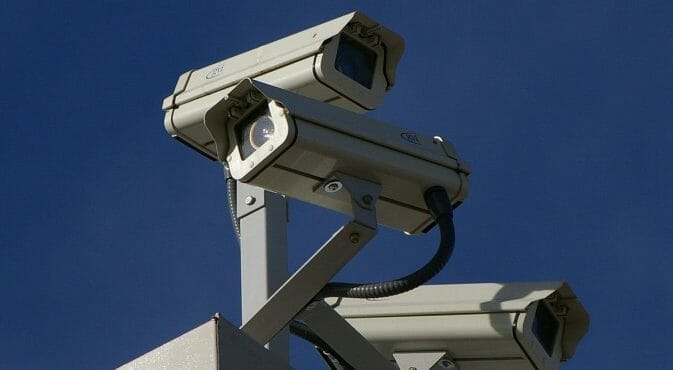Quick Navigation
- Important note: What is loop recording?
- SD Card Storage – Depends On The Storage
- Local footage storage
- FAQ
- How Much Storage Do Security Cameras Have?
- What Happens to Old Security Footage?
- How Much Storage Do I Need?
- How Does Camera Resolution Affect Storage Capacity?
- What If I Want To Keep Footage For Longer?
- Why Video Storage Matters?
- Generally speaking, how long do businesses store security camera footage?
- How long do residential video surveillance systems store security camera footage?
Security cameras can record countless amounts of footage but it all depends on the equipment they use, so we will try to be as general as possible with our answer and give you some certain scenarios.
In general when discussing how long security cameras keep footage: the amount of time surveillance footage is kept totally depends on the amount of recording space available. Typically, businesses will have at least one month’s worth of security camera footage saved, while homeowners tend to keep at least one to two week’s worth. However, these numbers could vary tremendously, based on a number of factors, including what camera you use, where the footage is stored, and certain other determinants.
Usually, an average security camera saves the videos in one of the following spots;
- SD Cards: For as long as the storage allows it (many use loop recording with 1 day – 1 week increments)
- Hard Drives: For as long as the storage allows it (many use loop recording with 1 day – 1 week increments)
- Cloud Storage: Forever, until manually deleted
- Servers: 30-90 days
Below we will go into more detail regarding how long footage stays on security cameras in each of the above-mentioned storage scenarios.
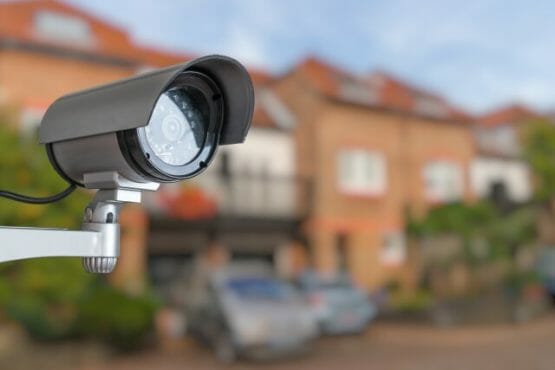
Important note: What is loop recording?
Loop recording refers to the process of a security camera overwriting older data to add new data for example if you only have 50 GB of storage and you get to that 50 GB the camera may start overwriting. Many security cameras use loop recording to save on data so if the security camera in question is using loop recording that will depend on the settings they have configured for that camera.
SD Card Storage – Depends On The Storage

Certain security cameras, usually those with older designs, use a memory card or micro SD card to store the footage. People still use this mode of storing security camera videos to avoid splurging money on subscription-based cloud storage, which can prove to be pretty expensive.
When discussing how long video footage will remain saved in the SD card, the answer is forever, until it is manually deleted from the card by you, or if the card gets broken and damaged. It also depends on the storage of the SD card. if it offers two weeks of storage, then at any point, you will have the footage of the last two weeks.
This is another reason why many people rely on SD cards more than other alternatives, it can keep the video footage perpetually saved for as long as you want, and for as long as you’re careful. Although, in some cases, the older videos are overwritten by the newer ones when using loop recording.
Local footage storage
Hard Drive – Depends on the storage

A hard disk drive is a data storage system that can store any digital content, including the footage taken by a surveillance system.
Hard drives don’t keep the video footage forever. Once the maximum capacity of the device is reached, which varies from brand to brand, the new videos you record will overwrite the older videos. (1)
If you want to keep the older videos safe, you might want to consider transferring the data from the hard drive to a computer or a laptop. To manage the space more efficiently, we advise you to monitor the storage regularly, and get rid of the videos that you don’t need, and keep the ones that you do and avoid running the risk of having the important videos overwritten with the newer ones.
Server Based Storage
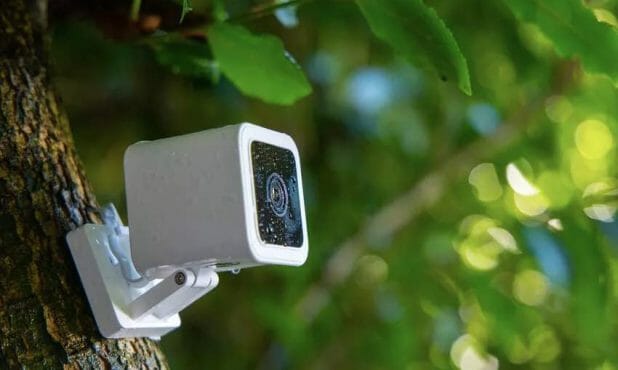
Server-based storage provides much ease and comfort when it comes to storing videos.
These may include DVRs or Digital Video Recorders and NVRs or Network Video Recorders. Whether to use NVR or DVR for storing the videos depends upon the cameras that you have installed.
For instance, NVRs work best with IP cameras, as they are linked with a digital network. Meanwhile, DVRs work best with analog security cameras, that operate via coaxial cable. Most businesses and individuals use NVRs these days, due to cloud technology which makes remote access, and efficient storage feasible.
30-90 days is the average time frame within which videos are stored in DVRs.
Cloud Storage
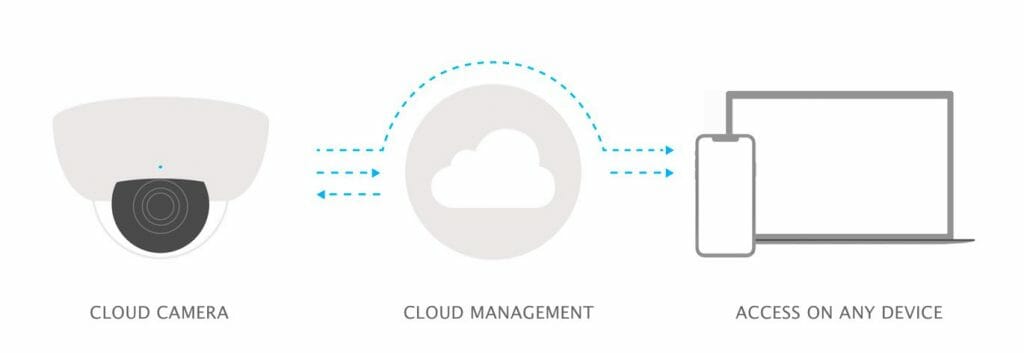
Cloud storage has become a fan-favorite thanks to its third-party management, and rapid syncing, which enables you to access the footage from anywhere, at any time. (2)
You are relieved of the burden to purchase and manage a data storage infrastructure on your own, like in the case of SD cards, and hard drive storage.
The best part is, you can extend the storage space once you run out of existing cloud storage. With an internet connection, security camera footage can be stored and accessed in the security camera cloud storage through wifi. You can keep the footage in the video storage for as long as you want, and schedule the time you want it to be deleted from the system.
The time frame could range from 14-31 days. However, if you wish to keep the footage forever, security camera cloud storage would allow you to do so, be it for days, months, or even years if need be. If you’re someone who wants to avoid dealing with hardware and keep security camera footage over the internet for quick and remote access, cloud storage is the one for you.
Loop Recording (Overwritten Storage)
Loop recording is a feature that enables your camera to overwrite the old videos with the new ones, once the storage is completely exhausted. Therefore, the duration of the storage depends upon the storage space of the system, and how often does your camera record. Usually, businesses and shop owners tend to keep one month’s worth of videos. On the other hand, homeowners typically keep one to two weeks’ worth of videos. Although, these are some averages we have pulled.
FAQ
How Much Storage Do Security Cameras Have?
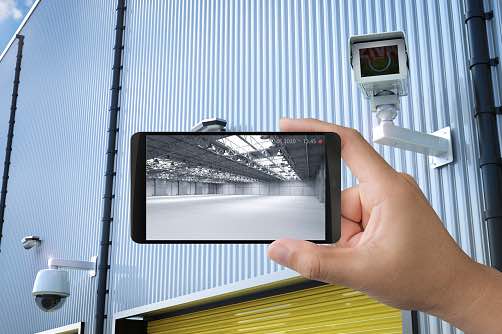
The storage levels of security cameras vary depending upon the type, brand, and model of the camera. IP cameras, hardwired cameras, CCTV systems, DVRs, cellular cameras, all these systems have varying storage capacities. However, on average, you can expect a security camera to have 60 – 240 GB of storage, per camera. In the near future, this frame will increase tremendously, owing to the increasing numbers of megapixels in security cameras.
What Happens to Old Security Footage?

In the case of SD cards and hard drives, the older footage is overwritten by the newer as soon as the storage maxes out completely. So for example, if the SD card’s storage allows 1 week worth of recordings, at any point, you will only have the recordings taken in the last one week. The overwriting can be prevented if you manage the storage well, and keep deleting the videos that are not needed or transferring the ones that are into a more secure spot such as a computer or a laptop. In doing so, you can always keep the space available for the new videos to be recorded, and prevent the risk of overwriting.
How Much Storage Do I Need?
The amount of storage that you need would depend upon how many surveillance cameras you are planning to install, and what kind of storage system you want to go for. The standard duration for which business establishments such as construction companies, supermarkets, and hotels keep the footage is 30 to 90 days, therefore, if you’re running a business, you might want to go for a storage option whose capacity falls within this time frame. In the case of home security systems, the duration shrinks down to a week, or two at best. For large enterprises, the duration soars to 3 months.
How Does Camera Resolution Affect Storage Capacity?

Camera resolution and megapixels play a pivotal role in storage capacity. The higher the resolution, the more space it would use, but it could also render a better viewing experience. This can make choosing the ideal camera resolution a bit tricky, as you’d have to choose between high resolution and more storage. Bear in mind that transferring or uploading videos can hamper the quality of the video or the image a bit.
What If I Want To Keep Footage For Longer?
There is a limit to how long you can keep video footage stored in the system. Thankfully, there are certain ways through which you can keep the recordings longer than usual.
Scheduled Recordings
Scheduled recordings are the prime way through which storage could be efficiently managed. It is one of the most used features of IP cameras. Through these features, you can instruct the camera when it should issue an alert and when it should refrain from it. By doing so, you can enable the recording when you’re out and about and want to keep an eye on the house. You can schedule the time when you want the camera to start recording, say when you’re leaving the house for a vacation, and the camera will automatically start recording at that point.
Motion Detection Cameras
Motion detection cameras can help in managing storage. These cameras monitor a specific spot and send an alert when it detects some movement. This is done by comparing sequential images and detecting the differences. If it detects any significant differences based on percentage and sensitivity, it informs you of the movements. Through the sensors, the camera will only pick up what’s important, preventing rapid consumption of storage, and by extension, allowing you to keep videos for longer periods of time.
Export Footage
SD cards and hard drives are usually meant for temporary storage, as at some point, you’d either have to delete the videos or run the risk of important videos being overwritten by the newer ones, unless, the videos are exported on time. You can export countless numbers of videos from the storage system onto your computer or laptop, and save them in the database for as long as you want. if you want to keep a particular clip for a longer period, you can export the rest.
Video Compression
Video compression is another method through which you can keep a larger number of videos on the storage system without running the risk of overwriting. Video compression reduces the number of bits used in representing a video or an image. It can be done through specialized applications. By compressing the raw files into a compact format, you can keep videos in the storage system longer than usual.
Why Video Storage Matters?

Video storage allows you to keep strict surveillance on your property, and be on the lookout for intruders. In both homes, and business establishments, stored security videos could prove to be invaluable. Therefore, managing the storage is crucial when you’re using several security cameras at the same time.
Generally speaking, how long do businesses store security camera footage?
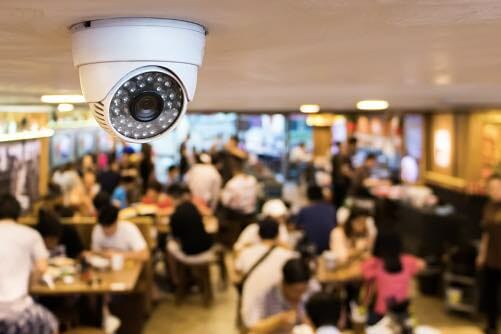
You can expect businesses to hold onto security camera footage for up to 30 to 90 days. Establishments such as supermarkets, hotels, retail shops, and construction companies specifically tend to keep camera footage for around one month.
How long do residential video surveillance systems store security camera footage?
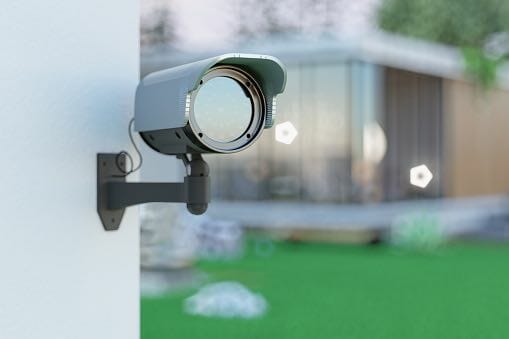
Residential Video Surveillance Systems or home security cameras typically store videos for a week, although, this would also depend upon the total storage of the system.
References
(1) hard drives – https://www.seagate.com/do-more/everything-you-wanted-to-know-about-hard-drives-master-dm/
(2) Cloud storage – https://searchstorage.techtarget.com/definition/cloud-storage

